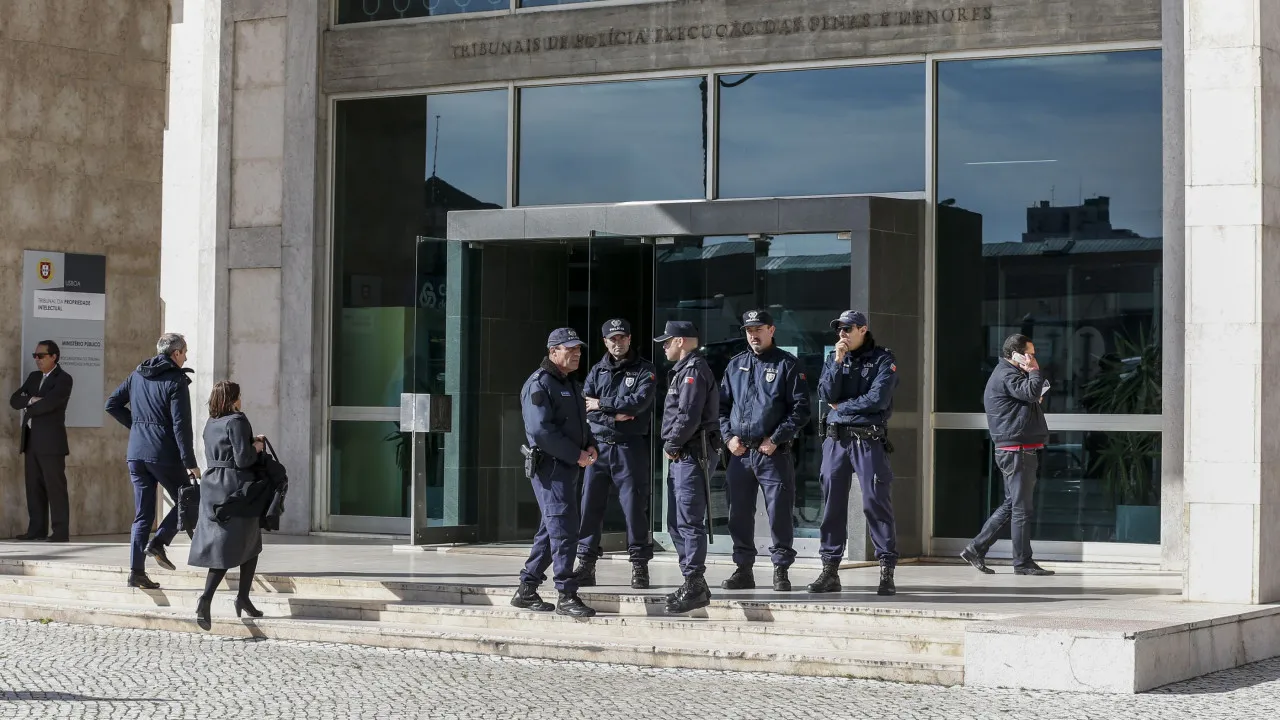
The authorities are aware of ongoing issues at the Palácio da Justiça, but solutions for the air conditioning system are anticipated to take two years to implement due to the need for tenders and project execution. The repair of doors remains in the market study phase.
A handwritten note, stating “Glass at risk of falling. Please do not close the door,” was affixed to a door on the top floor of one of the buildings. Last Wednesday, one had to climb five floors on foot to read it, as the elevator was out of order, though this was resolved the following day.
These buildings, located near Lisbon’s prison, also suffer from a lack of air conditioning, a problem exacerbated during hot weather.
At the first session of the trial involving the singers Anjos and comedian Joana Marques, held last week in the courtroom on the sixth floor, a fan was placed near the presiding judge, while others resorted to using papers to combat the heat.
These issues are longstanding. As reported in a 2023 study updated in March by the Council of Magistracy (CSM), the Palácio da Justiça requires “multiple and profound interventions,” including elevator maintenance, plumbing, lighting, and painting, as well as the installation of a heating/cooling system and surveillance cameras.
The authorities indicated that “due to a lack of maintenance on the air conditioning units in recent years, all equipment must be replaced.”
Besides replacing the air conditioning units, electrical, lighting, roofing, facades, and security systems, overseen by the Institute of Financial Management and Justice Equipment (IGFEJ), need renovation. The CSM reported the poor image quality of existing external cameras.
These interventions are not immediate, as the IGFEJ predicts launching a project tender later this year, with project drafting in 2026 and commencement of works in 2027.
Regarding door and glass replacement, the Lisbon jurisdiction, in conjunction with the Directorate-General for Justice Administration (DGAJ), is conducting a preliminary market consultation for repairing a set of doors.
The Council of Magistracy further highlights the constant elevator breakdowns in these buildings—some of which are original installations nearly 50 years old with irreplaceable parts. “New elevators installed a few years ago also experience frequent failures,” notes the CSM report. In March this year, five elevators were not operational, leading to postponed proceedings as individuals could not access upper floors via stairs.
At present, authorities assured, “apart from one recently installed piece of equipment awaiting functionality clearance from the IGFEJ, all other elevators are operational.”
The CSM also noted in its report issues such as the need for thorough window and shutter cleaning, and obsolete computer equipment, including laptops that must stay connected to power because of non-functioning batteries.
RCV // JMR
Lusa/End




